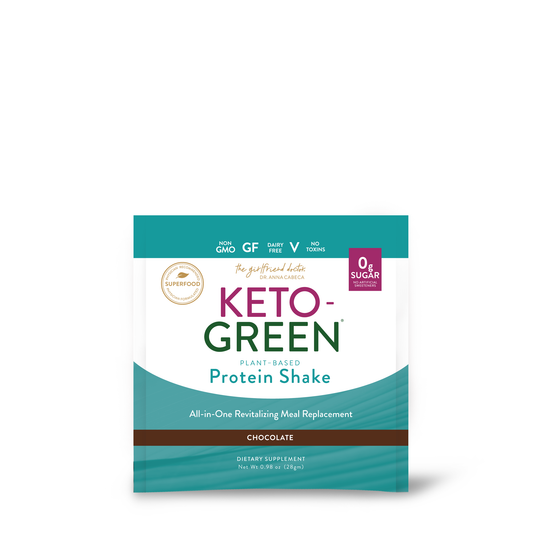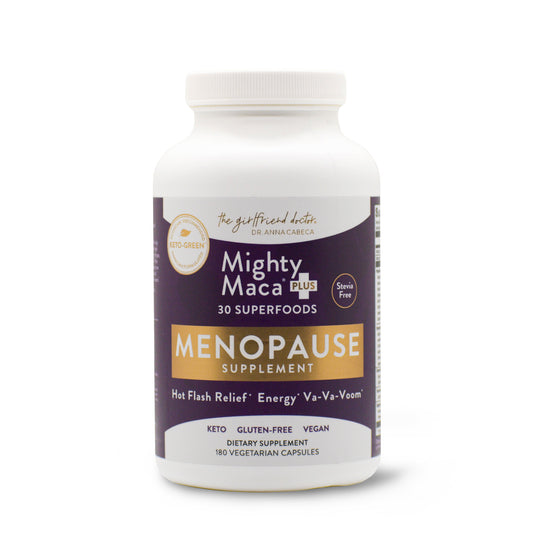Girlfriend, almost daily, I hear from women who feel alienated and alone. They’re struggling. With uncomfortable symptoms. With their changing body. With their changing looks. The worst part? It seems like they always assume "I’m the only one going through this."
Nothing could be further from the truth. And I’m here to tell you: you're absolutely not alone. Whether you're in your late 30s or early 40s, noticing subtle shifts, or deep into menopause, wondering where your old self went, the questions you're asking yourself (and maybe losing sleep over) are the same ones landing in my inbox every single day.
So let's talk about the stuff that feels too awkward to bring up at book club, too personal for the doctor's office, and too complicated for a quick Google search.
Because here's what I've learned after years of these conversations — the moment we start talking honestly about midlife intimacy, everything gets a little easier.
Let’s start with four of the top questions I get:
1. "Why doesn't my body respond the way it used to?"
2. “Why does sex hurt all of a sudden?”
3. "Is it normal to feel like I've lost interest completely?"
4. "How do I talk to my partner about all of this?"
Let’s dive into these concerns and talk through them — no judgment, just validation and real talk.

This might be the most common question I get, and it usually comes with a side of frustration and a dash of panic. First, let me say this: your body isn't broken. It's changing, and those changes are completely normal, even if they feel anything but normal to you right now.
During perimenopause and menopause, estrogen levels fluctuate and eventually decline, which affects blood flow, natural lubrication, and sensitivity. What used to be automatic now might need a little more time, attention, or help. Some women notice these changes gradually; others feel like they woke up in a different body overnight.
The good news? This doesn't mean intimacy is over; it just means it's evolving. Many women find that once they adjust their expectations and explore what works for their changing bodies, intimacy can actually become more satisfying than before. It just might look different than it did in your 20s or 30s, and that's perfectly okay.

Pain during intimacy can be scary and isolating. You’re not imagining it. As estrogen levels drop, vaginal tissues can become thinner and less lubricated, making penetration feel scratchy or even painful.
Pain isn’t your fault, and it doesn’t mean you have to give up intimacy altogether. Think of vaginal tissue like the skin on your hands; without moisture, it cracks. Your body simply needs extra care now.
Try using code words or signals with your partner (“Let’s pause,” “A little more lube”) to keep the mood relaxed. When you feel safe speaking up, you’re more likely to stay connected — even if things get a bit awkward.
It makes sense you’d feel anxious when intimacy starts to hurt. Your body is asking for a gentler touch, and you deserve that care.

Short answer: Yes. Longer answer: It's complicated, but you're definitely not alone in feeling this way.
Hormonal changes can absolutely affect libido, but it's rarely just about hormones. Midlife is intense. You might be dealing with aging parents, teenagers, career pressures, or all of the above. You're tired in ways you've never been tired before. Your relationship with your body is shifting.
Of course, your interest in intimacy might take a backseat.
What I want you to know is that this doesn't make you broken or a bad partner. It makes you human. Some women find their interest returns as they navigate through menopause. Others discover that intimacy becomes more about connection and less about frequency. And some realize they need to have honest conversations with their partners about what they need now versus what they needed before.
There's no timeline for "getting back to normal" because this is your new normal. And that's not a consolation prize — it's an opportunity to define intimacy on your own terms.

This question usually comes with a lot of anxiety, and I get it. These conversations can feel vulnerable and scary, especially when you're not even sure what you're experiencing yourself.
Here's what I've learned works: start with what you do know, even if it's just "I'm going through some changes and I'm not sure what they mean yet." You don't need to have all the answers before you start talking. In fact, framing it as something you're figuring out together can actually bring you closer.
Try something like: "I've been noticing some changes in how I feel about intimacy, and I'm still learning what they mean. Can we talk about this together?" or "My body is going through some changes right now, and I want to make sure we stay connected while I figure out what I need."
Most partners want to understand and support you, they just need to know what's happening.
And if your partner isn't receptive to these conversations, that tells you something important about what you might need to address in your relationship.
You're Part of Something Bigger
Here's what I want you to remember: every question you're asking, every concern you're having, every moment of confusion or frustration — millions of other women are experiencing the exact same thing. We just don't talk about it enough.
But that's changing. Women are starting to speak up about midlife intimacy, demanding better information, and refusing to accept that this phase of life means settling for less. You're part of that movement, even if you don't feel particularly brave right now.
Your questions matter. Your experience matters. And most importantly, you deserve to feel comfortable and confident in your own skin, no matter what phase of life you're in.
What's Your Question?
I know we've only scratched the surface here. Maybe you're wondering about specific physical changes, or how to rediscover what you enjoy, or whether what you're experiencing is something you should discuss with a healthcare provider.
Whatever you're wondering about, know that it's a valid question, and you're not the only one asking it.
Ready to ask your own question? Submit it anonymously using the button below. No question is too personal, too awkward, or too complicated. We're all figuring this out together, and your question might be exactly what another woman needs to hear answered.
Because here's the thing: the more we talk about this stuff, the less scary and isolating it becomes. And that benefits all of us.









